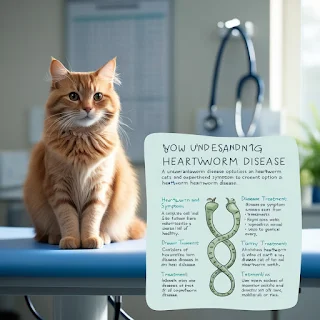Feline Heartworm Prevention: Essential Steps to Safeguard Your Cat
Heartworm disease is a serious and potentially fatal condition that affects cats. Prevention is crucial to ensure the health and well-being of your feline companion. Regular veterinary check-ups, along with a consistent preventive regimen, can significantly reduce the risk of heartworm infection. It is important to keep your cat indoors as much as possible, as this minimizes exposure to mosquitoes, the primary carriers of heartworms. Additionally, using mosquito repellents safe for cats can provide an extra layer of protection.
Heartworm Prevention Cats: Protecting Your Feline Friend from Heartworm Disease
Preventing heartworm disease in cats involves a combination of measures. Monthly heartworm preventives, available in various forms such as pills, topical solutions, and injections, are highly effective in protecting cats from heartworm infection. These medications work by eliminating any larvae that may have entered the cat's bloodstream before they mature into adult heartworms. It is essential to administer these preventives year-round, as mosquitoes can be active even in cooler months. Consult your veterinarian to determine the best preventive option for your cat based on their health, lifestyle, and risk factors.
Feline Heartworm Symptoms: Recognizing the Signs of Heartworm Disease in Cats
Heartworm disease in cats can be challenging to diagnose, as symptoms often vary and can be subtle. Common signs to watch for include coughing, difficulty breathing, lethargy, weight loss, and vomiting. In some cases, cats may exhibit more severe symptoms such as fainting, seizures, or sudden collapse. It is important to note that some cats may show no signs of illness until the disease has progressed significantly. If you notice any of these symptoms in your cat, seek veterinary attention promptly for a thorough evaluation and appropriate testing.
Heartworm Disease in Cats: Understanding the Impact on Your Cat's Health
Heartworm disease is caused by the parasitic worm Dirofilaria immitis, which is transmitted through mosquito bites. Once inside the cat's body, the larvae travel to the heart and lungs, where they mature into adult worms. These worms can cause significant damage to the cat's cardiovascular and respiratory systems, leading to severe health complications. Unlike dogs, cats are not natural hosts for heartworms, and even a small number of worms can cause serious illness. Early detection and intervention are crucial to managing the disease and improving the cat's quality of life.
Heartworm Medicine Cats: Effective Medications for Preventing Heartworm Disease
There are several heartworm preventives available for cats, each with its own advantages. Oral medications, such as ivermectin and milbemycin, are commonly used and are effective when administered monthly. Topical solutions, like selamectin and moxidectin, are applied to the skin and provide protection for a month as well. Injectable preventives, such as moxidectin, offer long-lasting protection and are administered by a veterinarian every six months. It is important to follow the recommended dosage and administration schedule to ensure optimal protection for your cat.
Cat Heartworm Treatment: Addressing Heartworm Disease in Infected Cats
Treating heartworm disease in cats can be challenging, as there is no approved medication to eliminate adult heartworms in cats. Instead, treatment focuses on managing symptoms and supporting the cat's overall health. This may include administering medications to reduce inflammation, improve respiratory function, and control secondary infections. In severe cases, surgical intervention may be necessary to remove adult worms from the heart and lungs. Ongoing monitoring and supportive care are essential to help the cat recover and maintain a good quality of life.
Heartworm Disease Symptoms: Identifying Early Warning Signs in Cats
Early detection of heartworm disease symptoms can make a significant difference in the outcome for affected cats. Symptoms such as persistent coughing, wheezing, and difficulty breathing should not be ignored. Other signs to watch for include decreased appetite, weight loss, and general lethargy. Cats may also exhibit periodic vomiting or diarrhea. In more advanced cases, symptoms can escalate to include fainting, seizures, and sudden collapse. If you observe any of these symptoms, seek veterinary care immediately for proper diagnosis and treatment.
Heartworm Infection Cats: Understanding the Risks and Consequences
Heartworm infection in cats poses serious health risks and can lead to life-threatening complications. The presence of even a few adult heartworms can cause significant damage to the cat's heart, lungs, and blood vessels. This can result in conditions such as heart failure, pulmonary hypertension, and chronic respiratory issues. Additionally, the death of adult worms can trigger severe inflammatory responses, leading to further complications. Preventive measures, early detection, and prompt treatment are essential to minimizing the impact of heartworm infection on your cat's health.
In conclusion, understanding heartworm disease in cats, including its symptoms and treatment options, is vital for ensuring the health and happiness of your feline friend. By taking proactive steps in prevention, recognizing early signs of infection, and seeking timely veterinary care, you can protect your cat from the serious consequences of heartworm disease. Regular check-ups, consistent use of preventives, and maintaining a safe environment are key to keeping your cat healthy and heartworm-free.




